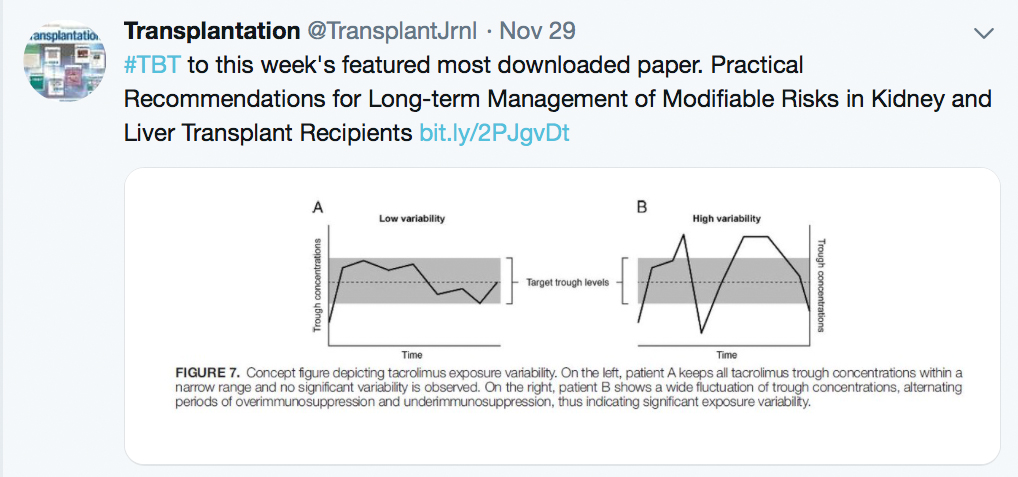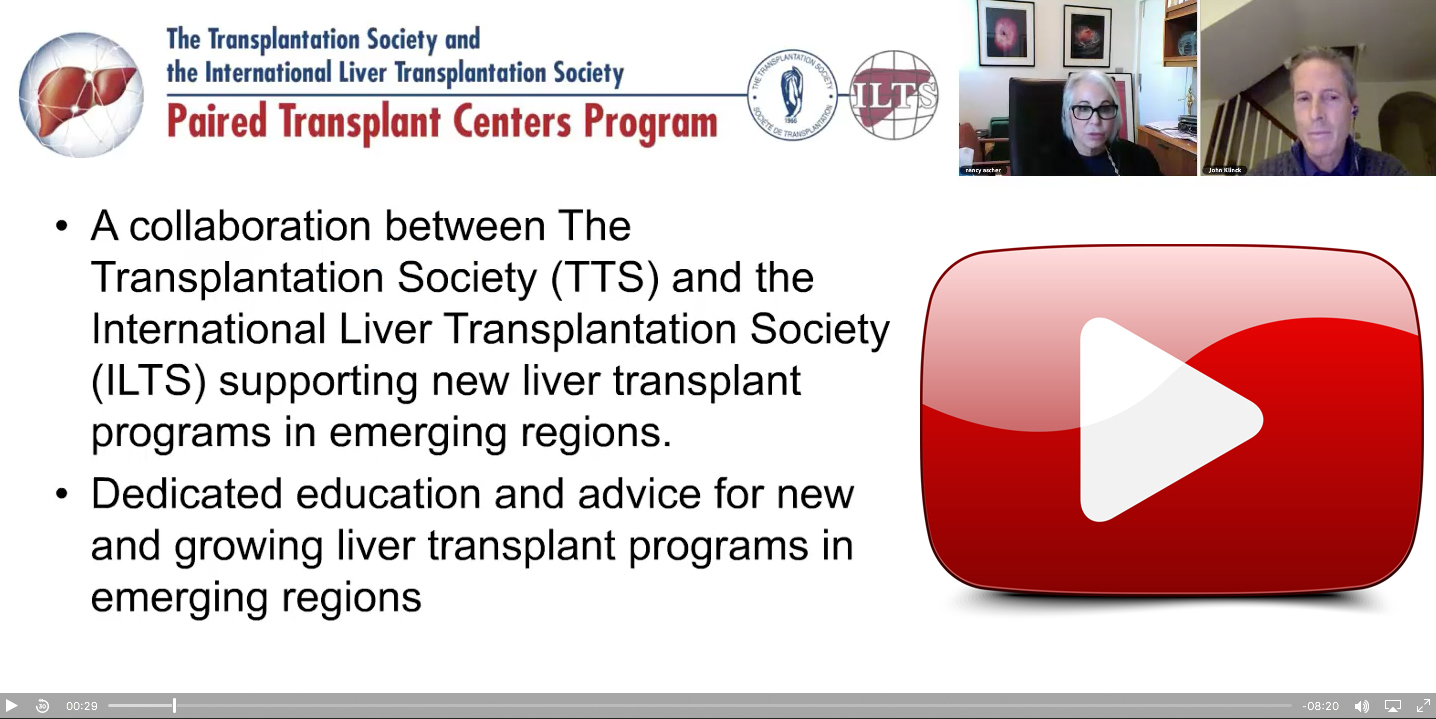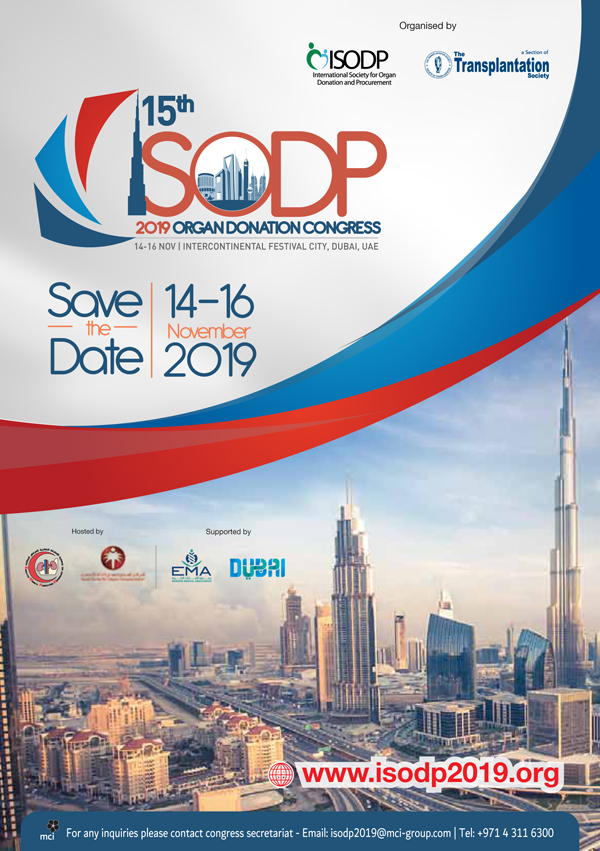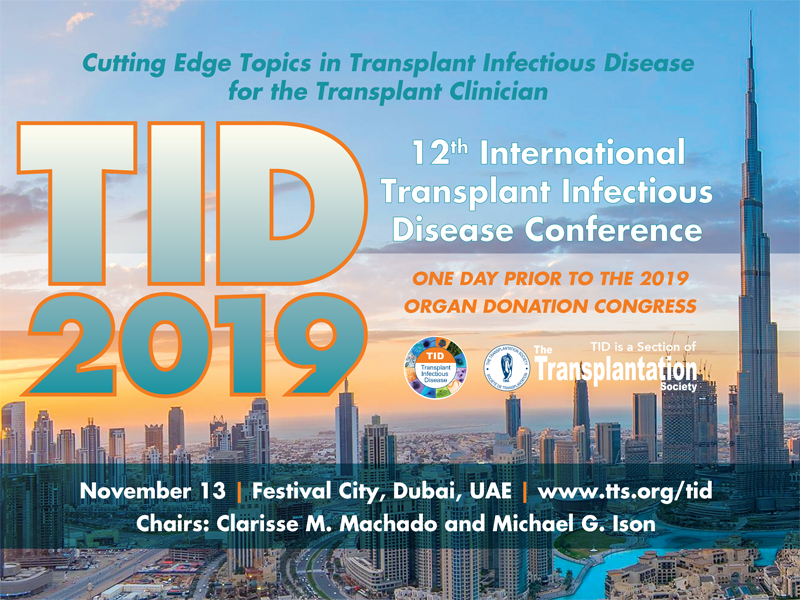
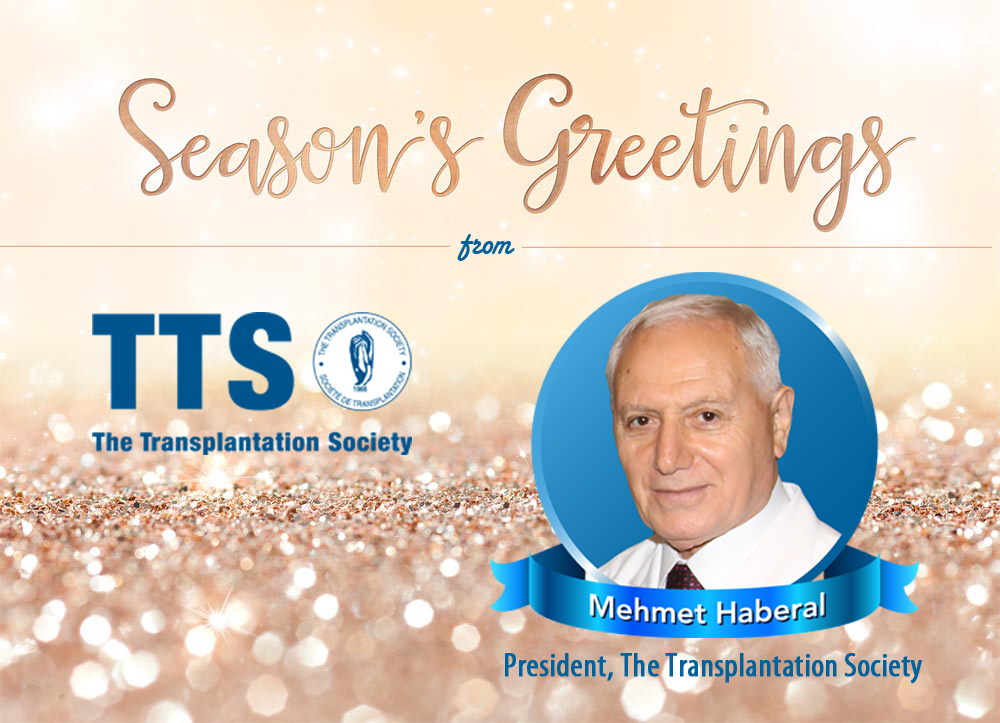
As we move into the final weeks of 2018, I'd like to personally wish you a very happy holiday season and start to the coming year.
The conclusion of one year, and the days leading up to the next are generally a time that many of us reflect on what has been achieved and what plans have been made for the year ahead, and to consider our obligations to others and what actions we can take to further contribute to our communities and to each other.
Over the year we organized a busy programme of events, including the 27th International Congress of The Transplantation Society in Madrid, which proved to be a great success and was well-attended by members and non-members alike. In addition, our membership numbers continue to grow steadily and I am pleased to say that we have attracted a substantial number of younger members, which is an important step for the future of our society.
At TTS, we expect 2019 to bring many opportunities for further growth and interaction. We look forward to a great start, with the 1st Regional Meeting of The Transplantation Society on the topic of deceased donation to be held in Istanbul on 28-29 March, 2019. This will be followed throughout the year by the meetings of several of our Sections, the details of which can be found on the Society website (www.tts.org).
In the coming year we will also continue to focus on global issues in transplantation, that deal with medical and scientific as well as social, legislative and ethical challenges that are faced by transplant professionals throughout the world. In particular, we will continue to work diligently to curtail organ trafficking and transplant tourism and produce positive impacts on those people who need our help the most.
Finally, from all of us at TTS, I wish you and your family and loved ones a safe, healthy and happy holiday season.
Mehmet Haberal, MD, FACS (Hon), FICS (Hon), FASA (Hon), FIMSA (Hon)
President, The Transplantation Society
On behalf of the TTS Council
TRANSPLANTATION DIRECT - HIGHLIGHTED ARTICLE
Dr Peri Husen, Editorial Fellow, Transplantation.
Renal Function, Albuminuria, and the Risk of Cardiovascular Events After Kidney Transplantation.
Lam NN, Klarenbach S, Quinn RR, et al.
Transplant Direct. 2018;4:e389.
When it comes to increased number of graft loss as well as mortality, kidney transplant recipients with a reduced estimated glomerular filtration rate (eGFR) and albuminuria following transplantation are at increased risk. Studies so far have not correlated these factors with the occurrence of cardiovascular events.
In this study, Lam and coworkers analyzed a Canadian healthcare database with 1069 kidney transplant recipients, assessing the relationship between severities of eGFR, albuminuria and the risk of cardiovascular events. The authors conclude that the combination of reduced eGFR and increased albuminuria determine the risk of all-cause mortality and cardiovascular events in kidney transplant recipients by 1 year post transplant
TTS-ILTS PAIRED TRANSPLANT CENTERS PROGRAM
Deadline January 1, 2019
Watch Video Overview with Nancy Ascher(TTS) and John Klick (ILTs)
The TTS-ILTS Paired Transplant Centers Program is a collaboration between The Transplantation Society (TTS) and the International Liver Transplantation Society (ILTS) supporting new liver transplant programs in emerging countries.
Visit www.tts-ilts.org for full details
Watch our video overview with Nancy Ascher and John Klinck
In the News
Scientists design way to track steps of cells' development
December 5 - Samantha Morris, PhD, and her team at Washington University School of Medicine in St. Louis designed a cellular tracking system that can give scientists a new view of how cells develop. This "flight data recorder" for cells could one day help scientists guide cells along the right paths to regenerate certain tissues or organs, or help researchers understand the wrong turns some cells might take on their way to becoming cancerous.
Does India's Heart Transplant Setup Really Favour Foreigners?
December 5 - A recent page-one headline in The Hindu read: 'In Chennai, the hearts beat for foreigners'. Another headline announced that in Tamil Nadu, three of four donated hearts go to foreigners, provoking emotive discussions on TV. (Only the fine print in the articles explained that it was actually one out of six). These claims were moderated by the newspaper a little later, but readers probably only remember the original headlines.
USA - Organ Transplant Innovations Can Save Health Care Dollars
December 12 - More than 114,000 Americans are on the organ transplant list and about 20 people die each day waiting for a transplant. Expanding the pool to allow organs to be transplanted that were previously discarded can reduce suffering, save lives and, in many cases, reduce high disease-related medical costs for self-insured employers, insurers and patients.
Pakistan: National Transplant Programme Can Curb Commercialism: Experts
December 13 - Renowned transplant surgeons, academicians and decision makers from across the globe here on Thursday said the countries need to develop national transplant programme based on ethical practices, transparency and well-being of the patients.
The Irish times: Are uterus transplants ethically acceptable?
December 7 - Several infertile women worldwide have given birth with wombs received from either living or dead donors
Upcoming Meetings ANNOUNCEMENTS
Less than 48 hours to the Abstract Deadline - December 15, 2018
We are offering low registration fees, which are further reduced for TTS, MESOT, TDTD or TOND Members, nurses and non physicians. Students may attend the meeting for free.
TID2019 - SAVE THE DATES!
PrE-MEETING TO ISODP 2019 - SAME VENUE ...one day prior!
Contact
+1-514-874-1717
This email address is being protected from spambots. You need JavaScript enabled to view it.
Address
The Transplantation Society
International Headquarters
505 Boulevard René-Lévesque Ouest
Suite 1401
Montréal, QC, H2Z 1Y7
Canada

